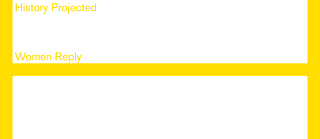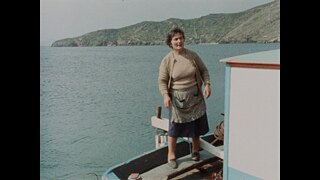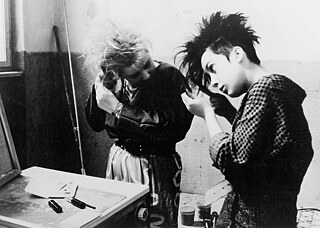Film Screenings
Episode 5: Women Reply

German-Greek Filmic Dialogues on the Past and Future
HISTORY PROJECTED
Film screenings program in collaboration with Ethnofest
Through a series of screenings that unfold over the course of 2024, Greek and German short and feature films introduce their own dialects and dialectics, assembling different approaches to a common historical past. Micro-narratives and off-beat, soft testimonies in the plural form; studies on mythology and role-plays with masks of national identity; jigsaw puzzles with fragments from the archive; loud and invisible gestures and artifacts break the distance from historical sources and prompt surprising readings on different sides of the border. In the end, history is brought to the present and projected into the future, whereas the language of cinema renders history a sensation, an instinct, and a collective experience.
Episode 5: Women Reply
Fournoi, A Female Society, Alinda Dimitriou & Nikos Kanakis, 1982, 43΄
(In Greek with English subtitles)
Winter adé, Helke Misselwitz, 1988, 116΄
(In German with Greek and English subtitles)
Two films made in the fuzzy 1980s, but at key instances in the political history of their production countries (after the “wind of change” promised by the first socialist government after the fall of the Colonels’ regime in Greece, and immediately before the Fall of the Wall in Germany). A program that focuses on the microhistories of women who inhabit some sort of margins, or the b-sides of official history: in East Germany and on an Aegean island that was once a place of exile. (The title of the program pays hommage to a short film commissioned to Agnès Varda by the French Broadcaster, on the occasion of the International Women’s Year [1975].)
Fournoi, A Female Society

20:00
Winter adé

Alinda Dimitriou was born in Athens in 1933 and studied film directing at Stavrakos School. Parallel to organizing film screenings between 1970 and 1975, she took part in short film seminars and wrote and translated texts for film magazines. She authored the book Short Films Filmography (1939–1979), and published the Short Films Lexicon in 1992. She directed more than 50 documentaries. In 2008, she won the Audience Award at the Thessaloniki International Film Festival for the film Birds in the Mire. Her trilogy, Birds in the Mire, Life on the Rocks, and The Girls of the Rain, which was warmly received by the audiences of the Thessaloniki Film Festival, highlighted the feistiness and strength of the female soul via personal accounts and evidence.
Nikos Kanakis studied cinema at the London Film School. In 1970, he started his Greek career as an editor and assistant director in short and feature films. From 1975 onwards, he started directing and editing documentaries. Between 1981–82, he directed a special series of about 40 documentaries, under the general title Greece of the 5 Oceans. In 1985, he directed and edited the movie The Necklace, in which he also served as a producer. In 1987, he directed and produced the documentary Markos Vamvakaris. In 1990, he directed and produced the TV series I Want to Meet. In 1994, he directed the feature film Western Window. Since 1995, he has edited and taken over the production of Greek films and five international co-productions with Cyprus, Bulgaria, and Turkey. He edited almost 100 short and feature films. For 15 consecutive years, he taught film theory and editing at the “Lykourgos Stavrakos” Film School in Athens, Greece. He passed away in 2024.
Helke Misselwitz is considered one of Germany’s most important documentary directors. She was born in 1947 in Planitz/Zwickau. After graduating from high school, she held apprenticeships as a carpenter and a physiotherapist, then worked for nine years as an assistant director and director with East German television. From 1978 to 1982, she studied directing at the Academy for Film and Television in Potsdam-Babelsberg. Misselwitz’s request to enter the DEFA Studio for Feature Films was refused, so she took other jobs while working as a freelance artist making short essayistic pieces for the DEFA Studio for Documentary Films. In 1985, she was accepted as a Master’s student at the East German Academy of the Arts. From 1988 to 1999, Misselwitz was employed as a director at the DEFA studio. She directed her first feature film, Herzsprung, in 1992, followed by Little Angel in 1996. She is Professor of directing at the Academy of Film and Television in Potsdam-Babelsberg and a member of the Academy of the Arts.
Details
Athen
Price: Free admission
+30 210 366 1014
kultur.athen@goethe.de
Part of series History Projected
Amphitheater